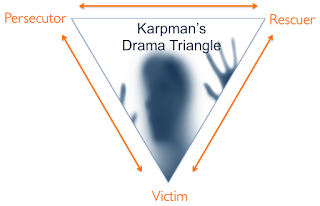Political Correctness vs. Genuine Empathy
po·lit·i·cal cor·rect·ness
noun
- the avoidance, often considered as taken to extremes, of forms of expression or action that are perceived to exclude, marginalize, or insult groups of people who are socially disadvantaged or discriminated against.
In my attempt to try and genuinely understand why so many good and intelligent people are still supporting Donald Trump for POTUS I keep stumbling across the general frustration with "liberal PCness" gone amok. If I understand correctly, conservatives feel like their freedom of speech has been threatened and limited by the liberal media. That their favourite jokes are now scorned. Their ideologies are unpopular. Their worldview is devalued. All of this makes being mainstream seem shameful. White, heterosexual, cysgendered, males are the enemy!
As far as I can see, I agree that there is an argument that in the attempt to stick up for the little guy we have overzealously created some unnecessary conflict. While trying to champion the rights of the downtrodden we have aggressively displaced those, who although in power, do not necessarily use their power maliciously. And now they resent the whole concept.
I recognize the need from which political correctness was born and I support the effort to make our public places safer but I my perception of PC is that it seems to be more about appearance than actual substance. I think there is a significant difference in being PC and being genuinely empathetic to other people.
Before I go further I must admit that I am writing from many different positions of privilege. I'm male. I'm white. I'm certainly not rich but I have never come close to anything resembling poverty. I'm of a religious majority in my community. I am straight. And there are numbers of other privileges that I'm not even aware of.
One problem with political correctness is that while very few people want to intentionally discriminate or marginalize others, we (human beings) tend to react to behaviours that seem to us to be from a "victim mentality". So while activists have done a remarkable job in revealing inequalities to those in power, the reality of those inequalities is often overlooked because of how people in power react to the victim approach that some activists use.
I'll use an example from the school yard. I often meet children who have difficulties making friends. They may have inherent personality traits that put them at a social disadvantage. While we as teachers are constantly reminding students to be friendly and to work together, some students make it difficult for their peers to be friends with them. The inequalities exist and should not make a difference as we should all be treated equally but some of these children constantly talk about their deficiencies with their peers. Children are actually pretty good at not discriminating. I personally believe that although they see differences and point out differences (often to our embarassment) they don't hold those differences against a person. On the other hand, children are not very good at knowing how to act when someone constantly brings up those differences. Children usually don't exclude other children because of the colour of their skin but they will exclude other children who talk incessantly about how nobody ever picks them. This is because those conversations make most children uncomfortable.
It's necessary to make those in power feel uncomfortable from time to time so that they understand inequality and join the fight against it. But some activism actually perpetuates the inequality rather than improving it. Look to the Karpman triangle below.
When someone is down (victim) we tend to react in one of two ways, both of which are not helpful or healthy as both come from a place of power and dominance. Victims who are not empowered, will actually seek a persecutor so that they can feel justified in their place as a victim. This also eventually and inevitably draws the attention of the rescuer who is able to cover up his/her own problems by coming to the victim's aid. This helps the rescuer feel better about him/herself but secretly s/he still benefits from the victim staying in the victim role. If the victim were truly empowered, then there would be no need for the rescuer. Victim keeps being the victim and the rescuer maintains power.
The persecutors or bullies get all of the heat. They are obviously the bad guys in this equation right? They criticize, control, and oppress but once again, as long as the victim stays in their role, the persecutor maintains their power. So it's in the persecutor's best interest to keep the victim down, let the rescuer fly in and patch it up and then continue dominating.
The victim actually has his/her own payoff in all of this. While they remain in their position of disadvantage, they don't have to feel responsible for it. Being a victim actually helps us psychologically cope with our disadvantages. Sure I'm not well off but that's because the system doesn't want me to do well. I don't have friends because everyone hates me. They're mean. My school is full of bullies. Not my fault.
An empowered person isn't concerned with faults. H/She is aware of systematic inequality and then decides how h/she will change that system. People are naturally attracted to empowered people. They join the cause, not to feel better about themselves; not to enjoy the power of being the hero of the downtrodden; but to genuinely make right out of a wrong.
Systematic racism happens everyday in our world and I am not a victim of it but as I try to have and show empathy for those who are, I need to remember that they are still capable, powerful, human beings despite the inequalities they face. As a white male I do not need to rescue my minority brothers. I can recognize their disadvantage and encourage their progress at the same time.
It takes many people to change systematic and social inequality but I do believe that those who have been knocked down by it need to be given the opportunity and the choice to get up on their own. My ego would love it if I could carry the unfortunates to the finish line but what will it matter if they still need to be carried?
If someone asks for help I will be there but I also want to be careful not to insert myself when I have not been invited.
You can argue that the political right is being run by persecutors and that the left by rescuers and if that's the case then both parties benefit from keeping the victims in their place.
Maybe true empathy can be the impetus to empower the less fortunate. Maybe by giving them our support and love as a safety net they can use their inherent strengths and talents to rise as opposed to only relying on ours.
I will say this. Our words matter. When I teach children physical boundaries and how to differentiate "good" touch from "bad", I teach that it is the person being touched that gets to decide. If I like it when my Dad tickles me but not when my teacher tickles me then I get to decide. It goes the same with words. If saying the Lord's name in vein hurts someone in your office, it isn't pc gone wild. That person gets to decide what is hurtful and what isn't. Likewise, if someone is hurt when using a certain word about a woman or a queer person or a religious person or a person of another race or colour, they get to decide what kind of language is hurtful or uplifting, not you. Deciding for someone else what is offensive and what isn't is a perfect example of an abuse of privilege.
That being said there is not a universal set of out-of-bounds terms. I'm sure there are terms that offend most people but as we attempt to empower ourselves we can only truly speak for ourselves and what we personally find offensive. Saying "I don't know if it is your intent but I have a reaction to that word that makes me feel uncomfortable," actually empowers you and is more effective in promoting change than saying, "you can't say that. You're a bigot".
In conclusion I suppose what I am suggesting is that in our public communication we examine our motivations. Are we looking to avoid making offense or to genuinely understand someone else's lived experience. That in our activism we assess if we are looking to rescue the helpless to raise our own status or empower the disenfranchised so that they can raise their own status. And that in our efforts to promote what we feel is right we don't infringe on the rights of other to be wrong.



Comments
Post a Comment